 For years leading up to 2012, spiritual-types who were sick of the way the world was heading could take comfort in the promise of a new era that was predicted to begin on December 21 of that year. The Mayans, known for their astronomical expertise had supposedly predicted it. In addition, St. Malachy’s famous Prophecy of the Popes, which predicts when the world as we know it would end, also correlates to about the same time period. The Hopi tribe, Edgar Cayce, a book attributed to Nostradamus, hell, even The History Channel’s countless specials all pointed towards 12/21/12 as the beginning of the end times. The details differed, but whether you believed that Earth was due for a major cataclysm, a spiritual awakening, a religious reckoning and rapture, an alien visitation, a new dimension, or just an enlightened age, most people seemed somewhat excited that a major event was on the horizon. When the day finally arrived, we instead got something that came as a shock to many: absolutely nothing. Or so it would seem.
For years leading up to 2012, spiritual-types who were sick of the way the world was heading could take comfort in the promise of a new era that was predicted to begin on December 21 of that year. The Mayans, known for their astronomical expertise had supposedly predicted it. In addition, St. Malachy’s famous Prophecy of the Popes, which predicts when the world as we know it would end, also correlates to about the same time period. The Hopi tribe, Edgar Cayce, a book attributed to Nostradamus, hell, even The History Channel’s countless specials all pointed towards 12/21/12 as the beginning of the end times. The details differed, but whether you believed that Earth was due for a major cataclysm, a spiritual awakening, a religious reckoning and rapture, an alien visitation, a new dimension, or just an enlightened age, most people seemed somewhat excited that a major event was on the horizon. When the day finally arrived, we instead got something that came as a shock to many: absolutely nothing. Or so it would seem.
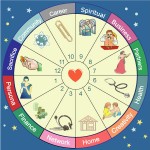 Supposedly, nobody ever said life was fair. Well, I’m saying it right now. Maybe I’m a nobody so the adage still works but I’ve come to believe that life is absolutely fair. Yes, there are selfish jerks who seem to be rewarded while truly good, hardworking, selfless people seem to be punished. There are people who’ve lived like there’s no tomorrow that live long, healthy lives while people who ate healthy, exercised and did everything right have died young. There are innocent children who suffer with terminal illness while evil dictators enjoy the good life. So how is it that I can possibly believe that life is fair? Because most people only see life on a superficial level, but it’s time that we dig a little deeper.
Supposedly, nobody ever said life was fair. Well, I’m saying it right now. Maybe I’m a nobody so the adage still works but I’ve come to believe that life is absolutely fair. Yes, there are selfish jerks who seem to be rewarded while truly good, hardworking, selfless people seem to be punished. There are people who’ve lived like there’s no tomorrow that live long, healthy lives while people who ate healthy, exercised and did everything right have died young. There are innocent children who suffer with terminal illness while evil dictators enjoy the good life. So how is it that I can possibly believe that life is fair? Because most people only see life on a superficial level, but it’s time that we dig a little deeper.
 You’ve seen it hundreds of times. Some guy is being interviewed by the local news after he helped prevent some crime or rescued someone in distress. The reporter asks, “Do you consider yourself a hero?” Apparently, this question must be asked in order to test whether or not said person is in fact a hero. According to local news rules of heroism, the man is only a hero, if and only if, he claims to not be one. Most people, knowing this rule, go on to say that they don’t consider themselves to be a hero because they just did what anyone in their situation would’ve done. The reporter then cuts back to the anchorpeople who disagree with the man’s assessment. Feeling that the hero test was passed, they comment about what a true hero the man is while a colorful “local hero” graphic displays besides them. Personally though, I agree with the guy. He’s not a hero.
You’ve seen it hundreds of times. Some guy is being interviewed by the local news after he helped prevent some crime or rescued someone in distress. The reporter asks, “Do you consider yourself a hero?” Apparently, this question must be asked in order to test whether or not said person is in fact a hero. According to local news rules of heroism, the man is only a hero, if and only if, he claims to not be one. Most people, knowing this rule, go on to say that they don’t consider themselves to be a hero because they just did what anyone in their situation would’ve done. The reporter then cuts back to the anchorpeople who disagree with the man’s assessment. Feeling that the hero test was passed, they comment about what a true hero the man is while a colorful “local hero” graphic displays besides them. Personally though, I agree with the guy. He’s not a hero.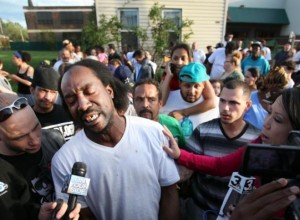
 Those who move in spiritual circles often talk about how we are all connected, that our thoughts create our future reality, and that the universe provides us with clues about our direction in life. Personally, I look at spiritual principles as scientific rules that we just don’t understand yet. Not too long ago, the idea that people could get sick from tiny bugs they couldn’t see or that invisible waves could carry images or music was thought to be magical thinking, until science proved it to be true. So if these spiritual principles are indeed a rule of our universe, there should be a way to test and predict their occurrence. Doing this on an individual scale might prove challenging though, since one person’s thoughts may not have enough energy to make something manifest in a testable way. But what if there were an event that millions of people were focusing on, and this event inspired heated, emotionally charged thoughts that could result in only one of two possible outcomes? If only we had such an event, why, we just might be able to predict the future on a grand scale!
Those who move in spiritual circles often talk about how we are all connected, that our thoughts create our future reality, and that the universe provides us with clues about our direction in life. Personally, I look at spiritual principles as scientific rules that we just don’t understand yet. Not too long ago, the idea that people could get sick from tiny bugs they couldn’t see or that invisible waves could carry images or music was thought to be magical thinking, until science proved it to be true. So if these spiritual principles are indeed a rule of our universe, there should be a way to test and predict their occurrence. Doing this on an individual scale might prove challenging though, since one person’s thoughts may not have enough energy to make something manifest in a testable way. But what if there were an event that millions of people were focusing on, and this event inspired heated, emotionally charged thoughts that could result in only one of two possible outcomes? If only we had such an event, why, we just might be able to predict the future on a grand scale!
 There is certainly no shortage of theories about what may or may not happen on December 21. Of course, nearly all of them will turn out to be wrong. My experience has shown however, that there is one thing you can do that will likely be beneficial regardless of what’s in store for us: think positive.
There is certainly no shortage of theories about what may or may not happen on December 21. Of course, nearly all of them will turn out to be wrong. My experience has shown however, that there is one thing you can do that will likely be beneficial regardless of what’s in store for us: think positive.
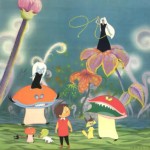 Have you ever tried to track down something you saw on TV as a kid, just to see if it was even real? Many of us are occasionally haunted by snippets of movies and shows we vaguely remember watching when we were children. We may wonder if these memories ever really happened, or if they were dreams. Especially when the memories seem incredibly bizarre! Having grown up in the 70s, I caught a LOT of psychedelic stuff on TV as a kid that I’ve become obsessed with tracking down as an adult. Why? Discovering forgotten moments from our youth is the closest thing we have to time travel. We get to relive an experience we had and to see what actually happened. Sometimes, we may even be shocked to find that the story from way back then provides an answer to our lives now.
Have you ever tried to track down something you saw on TV as a kid, just to see if it was even real? Many of us are occasionally haunted by snippets of movies and shows we vaguely remember watching when we were children. We may wonder if these memories ever really happened, or if they were dreams. Especially when the memories seem incredibly bizarre! Having grown up in the 70s, I caught a LOT of psychedelic stuff on TV as a kid that I’ve become obsessed with tracking down as an adult. Why? Discovering forgotten moments from our youth is the closest thing we have to time travel. We get to relive an experience we had and to see what actually happened. Sometimes, we may even be shocked to find that the story from way back then provides an answer to our lives now.
 Have you seen them? They’re everywhere: in movies and TV shows, on ads and product packaging, in architecture, design, floor patterns, the Olympics, online, and even on the paper wrapped around hero sandwiches. They are honeycombs and hexagons, and they are taking over. Sure, design styles come and go, but why has this one seemed to have popped up so suddenly, become so incredibly prolific, and been so invisible to so many? Of course, now that you’re in the know, you’ll begin seeing them too (if you haven’t already). The question is why are they here, what do they mean, and why should you care?
Have you seen them? They’re everywhere: in movies and TV shows, on ads and product packaging, in architecture, design, floor patterns, the Olympics, online, and even on the paper wrapped around hero sandwiches. They are honeycombs and hexagons, and they are taking over. Sure, design styles come and go, but why has this one seemed to have popped up so suddenly, become so incredibly prolific, and been so invisible to so many? Of course, now that you’re in the know, you’ll begin seeing them too (if you haven’t already). The question is why are they here, what do they mean, and why should you care?
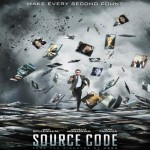 As mentioned in last quarter’s column, there have been a lot of “life-as-illusion” themed movies coming out lately. While I suspect that the success of Avatar and Lost are partly responsible for this trend, I think people’s fascination with 2012, drastic world changes, and a surge in our search for meaning are also fueling the recent string of films about alternate realities and simulated worlds. When airplanes are crashing into buildings, cities are submerged underwater, the Middle East is revolting, and the world economy is collapsing, real life almost seems more fantastical than our dreams. Jon Stewart summed it up perfectly at the 2008 Academy Awards: “Normally, when you see a black man or a woman president, an asteroid is about to hit the Statue of Liberty.” Yes, we are now officially living in the future, and we all know what kind of stuff happens in the future—exactly the kind of stuff that’s happening right now. But at least, thanks to Hollywood, we’ve been warned. And Hollywood’s heads up may even go much deeper than prophesies of events to come. They may help explain the reality we all find ourselves in.
As mentioned in last quarter’s column, there have been a lot of “life-as-illusion” themed movies coming out lately. While I suspect that the success of Avatar and Lost are partly responsible for this trend, I think people’s fascination with 2012, drastic world changes, and a surge in our search for meaning are also fueling the recent string of films about alternate realities and simulated worlds. When airplanes are crashing into buildings, cities are submerged underwater, the Middle East is revolting, and the world economy is collapsing, real life almost seems more fantastical than our dreams. Jon Stewart summed it up perfectly at the 2008 Academy Awards: “Normally, when you see a black man or a woman president, an asteroid is about to hit the Statue of Liberty.” Yes, we are now officially living in the future, and we all know what kind of stuff happens in the future—exactly the kind of stuff that’s happening right now. But at least, thanks to Hollywood, we’ve been warned. And Hollywood’s heads up may even go much deeper than prophesies of events to come. They may help explain the reality we all find ourselves in.
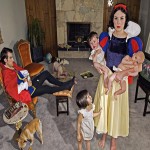 Once upon a time, you believed that you were very special. That you’d grow up to make a difference in the world, be paid handsomely for doing so, find true love, have some equally special children, and live happily ever after. Unfortunately, life hasn’t worked out quite as good as the fairytale. So, were we all lied to? In Lost’s “Happily Ever After” Desmond discovers that there is a reality where all his dreams can come true. So where is this reality and do we need to be as special as Desmond to get there?
Once upon a time, you believed that you were very special. That you’d grow up to make a difference in the world, be paid handsomely for doing so, find true love, have some equally special children, and live happily ever after. Unfortunately, life hasn’t worked out quite as good as the fairytale. So, were we all lied to? In Lost’s “Happily Ever After” Desmond discovers that there is a reality where all his dreams can come true. So where is this reality and do we need to be as special as Desmond to get there?
 Have you ever wondered what would happen if you could go back to a particular moment of your life and do something differently? What if you hadn’t taken a job you’d accepted, married someone you’d broken up with, said “no” when you’d previously said yes…or vice-versa? What if we were all allowed one do-over? Would your life be completely different than it is now, or would events have conspired to put you in pretty much the same place? By continuing to explore the concept of the variable, “Follow the Leader” brings up these very same questions, and if you’ve been paying attention, it’s already given us the answers.
Have you ever wondered what would happen if you could go back to a particular moment of your life and do something differently? What if you hadn’t taken a job you’d accepted, married someone you’d broken up with, said “no” when you’d previously said yes…or vice-versa? What if we were all allowed one do-over? Would your life be completely different than it is now, or would events have conspired to put you in pretty much the same place? By continuing to explore the concept of the variable, “Follow the Leader” brings up these very same questions, and if you’ve been paying attention, it’s already given us the answers.
 For years leading up to 2012, spiritual-types who were sick of the way the world was heading could take comfort in the promise of a new era that was predicted to begin on December 21 of that year. The Mayans, known for their astronomical expertise had supposedly predicted it. In addition, St. Malachy’s famous Prophecy of the Popes, which predicts when the world as we know it would end, also correlates to about the same time period. The Hopi tribe, Edgar Cayce, a book attributed to Nostradamus, hell, even The History Channel’s countless specials all pointed towards 12/21/12 as the beginning of the end times. The details differed, but whether you believed that Earth was due for a major cataclysm, a spiritual awakening, a religious reckoning and rapture, an alien visitation, a new dimension, or just an enlightened age, most people seemed somewhat excited that a major event was on the horizon. When the day finally arrived, we instead got something that came as a shock to many: absolutely nothing. Or so it would seem.
For years leading up to 2012, spiritual-types who were sick of the way the world was heading could take comfort in the promise of a new era that was predicted to begin on December 21 of that year. The Mayans, known for their astronomical expertise had supposedly predicted it. In addition, St. Malachy’s famous Prophecy of the Popes, which predicts when the world as we know it would end, also correlates to about the same time period. The Hopi tribe, Edgar Cayce, a book attributed to Nostradamus, hell, even The History Channel’s countless specials all pointed towards 12/21/12 as the beginning of the end times. The details differed, but whether you believed that Earth was due for a major cataclysm, a spiritual awakening, a religious reckoning and rapture, an alien visitation, a new dimension, or just an enlightened age, most people seemed somewhat excited that a major event was on the horizon. When the day finally arrived, we instead got something that came as a shock to many: absolutely nothing. Or so it would seem.








 Have you ever wondered what would happen if you could go back to a particular moment of your life and do something differently? What if you hadn’t taken a job you’d accepted, married someone you’d broken up with, said “no” when you’d previously said yes…or vice-versa? What if we were all allowed one do-over? Would your life be completely different than it is now, or would events have conspired to put you in pretty much the same place? By continuing to explore the concept of the variable, “Follow the Leader” brings up these very same questions, and if you’ve been paying attention, it’s already given us the answers.
Have you ever wondered what would happen if you could go back to a particular moment of your life and do something differently? What if you hadn’t taken a job you’d accepted, married someone you’d broken up with, said “no” when you’d previously said yes…or vice-versa? What if we were all allowed one do-over? Would your life be completely different than it is now, or would events have conspired to put you in pretty much the same place? By continuing to explore the concept of the variable, “Follow the Leader” brings up these very same questions, and if you’ve been paying attention, it’s already given us the answers.
